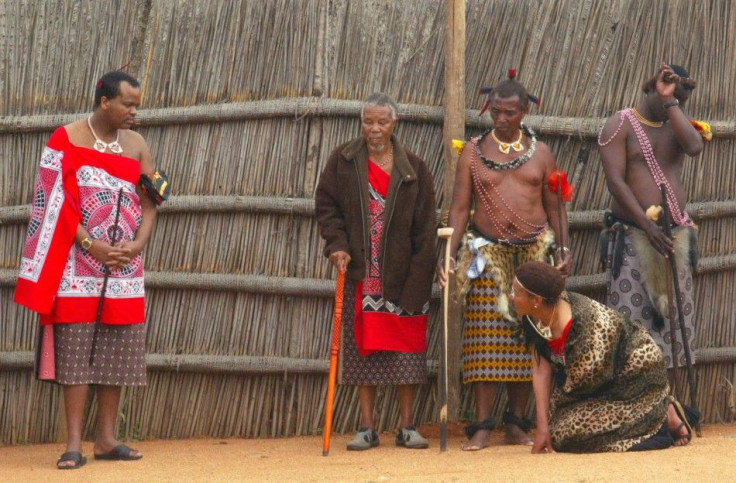Swaziland Government Ignores Its Starving People To Sell Donated Food For Cash

The government of Swaziland, a small landlocked nation in Southern Africa and one of the poorest countries on earth that cannot feed itself, sold almost 12,000 metric tons of maize donated by Japan to raise cash.
The Swazi Observer newspaper reported last week that the food aid (which never reached any hungry mouths in Swaziland) generated revenues of about $3 million). The funds were subsequently deposited into a special account at the central bank.
Members of Parliament have demanded answers from the government, accusing the state of not caring about its people -- one-third of whom is malnourished, according to a report published by Swaziland’s own Ministry of Economic Planning and Development. More than two-thirds of the people live in chronic poverty.
The Guardian newspaper of Britain reported that Swaziland depends heavily on international food aid and that the country has failed to produce enough food to feed itself for the past four decades. One problem is climate change -- the country is becoming more arid. Another problem is that farmers are unable to borrow money to invest in farming and irrigation machinery.
An NGO told the Guardian that Swaziland government actions could have a negative impact on future foreign aid programs to the impoverished state.
Swaziland is a kingdom ruled by Africa’s last absolute monarch, King Mswati III. His own brother, Prince Hlangusemphi Dlamini, is the country’s economic planning minister -- i.e., the state authority ultimately responsible for selling the donated maize. Dlamini has yet to respond to questions from MPs about the transaction.
Meanwhile, Swaziland’s economy continues to deteriorate -- GDP dropped by 3 percent in 2012. The International Monetary Find has forecast that by next year, Swaziland will have the poorest performing economy on the planet, replacing war-torn Somalia for that dubious distinction.
The economy has depended upon revenue from the Southern African Customs Union (SACU), which hands out tax revenues generated from goods entering southern Africa to its five member states (Botswana, Lesotho, Namibia, South Africa and Swaziland). But such revenues have plunged in tandem with the global financial crisis.
"The government is desperate for money and will grab it by hook or by crook, even taking food from the mouths of babies," an unnamed private-sector accountant told the Guardian.
"At the same time, the government is used to the international community rushing in with aid to cover the government's mismanagement of the economy and the humanitarian crisis here."
The King of Swaziland, Mswati, has refused to implement fiscal recovery programs as mandated by the IMF -- including a reduction in civil servant jobs and high salaries to military and other public officials.
Even more tragic, Swaziland -- which is also beset by high unemployment and the highest rate of HIV in the world -- the maize that Japan donated forms the nation’s staple diet. As jobs disappear and wages slashed, many Swazi families have reduced the number of meals.
In a report released in 2011 by the U.N. Country team in Swaziland, one out of four households in the rural regions often doesn’t eat for an entire day.
“In rural areas and especially among female-headed households, coping mechanisms are supplemented by other budget management methods, such as gathering of wild food and harvesting immature food,” the report stated.
“Starting from an already weak situation, food security seems to have deteriorated as households have been coping with the consequences of the fiscal crisis combined with the rising food price.”
Action for Southern Africa (ACTSA), a human rights campaign group that succeeded the anti-apartheid movement in the U.K. has called Swaziland a "failed state."
“One way or the other, South Africa will pick up part or all of the cost when the imminent failed state of Swaziland collapses into final financial destitution, as forecast by all reasonable and neutral economic prognosticators,” said Charles Maphanga, a Mpumalanga, South Africa-based financial consultant, according to ACTSA.
© Copyright IBTimes 2024. All rights reserved.




















